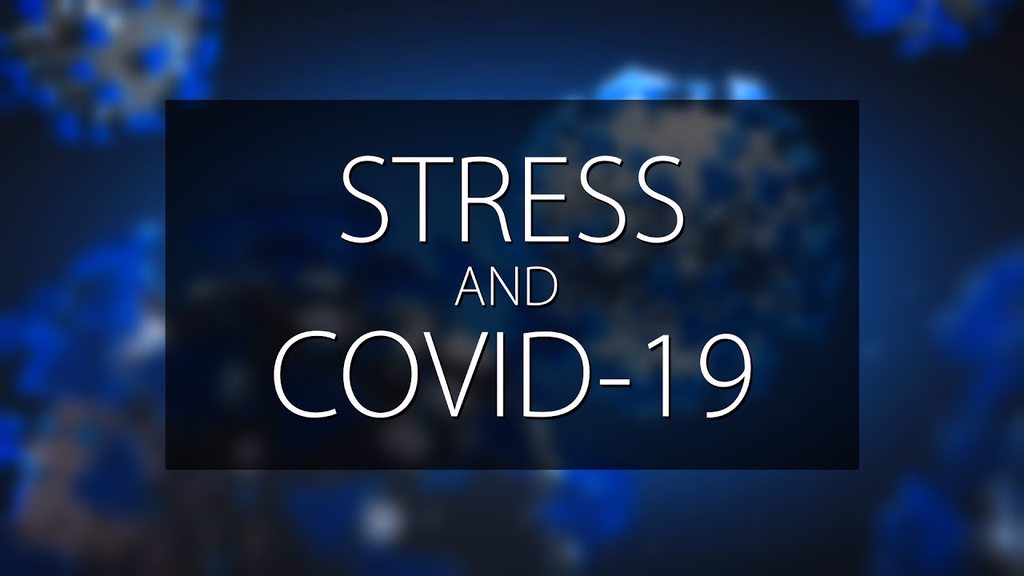Stress & COVID-19
Posted on April 02, 2020 in Latest News

The outbreak of coronavirus disease 2019 (COVID-19) may be stressful for people. Fear and anxiety about a disease can be overwhelming and cause strong emotions in adults and children. Coping with stress will make you, the people you care about, and your community stronger.
Everyone reacts differently to stressful situations. How you respond to the outbreak can depend on your background, the things that make you different from other people, and the community you live in.
People who may respond more strongly to the stress of a crisis include:
-Older people and people with chronic diseases who are at higher risk for COVID-19
-Children and teens
-People who are helping with the response to COVID-19, like doctors and other health care providers, or first responders
-People who have mental health conditions including problems with substance use
Stress during an infectious disease outbreak can include:
-Fear and worry about your own health and the health of your loved ones
-Changes in sleep or eating patterns
-Difficulty sleeping or concentrating
-Worsening of chronic health problems
-Increased use of alcohol, tobacco, or other drugs
-An increase or decrease in your energy and activity levels
-An increase in irritability, with outbursts of anger and frequent arguing
-Crying frequently
-Wanting to be alone most of the time
-Blaming other people for everything
-Having difficulty communicating or listening
-Having difficulty giving or accepting help
-Inability to feel pleasure or have fun
Know How To Relieve Stress:
You can manage and alleviate your stress by taking time to take care of yourself.
Keep Things in Perspective: Set limits on how much time you spend reading or watching news about the outbreak. You will want to stay up to date on news of the outbreak, particularly if you have loved ones in places where many people have gotten sick. But make sure to take time away from the news to focus on things in your life that are going well and that you can control.
Get the Facts: Find people and resources you can depend on for accurate health information. Learn from them about the outbreak and how you can protect yourself against illness, if you are at risk. You may turn to your family doctor, a state or local health department, U.S. government agencies, or an international organization. We recommend the Center for Disease Control and PA Department of Health websites for the most up to date information.
Keep Yourself Healthy:
-Eat healthy foods, and drink water.
-Avoid excessive amounts of caffeine and alcohol.
-Do not use tobacco or illegal drugs.
-Get enough sleep and rest.
-Get physical exercise.
Use Practical Ways to Relax:
-Relax your body often by doing things that work for you—take deep breaths, stretch, meditate, wash your face and hands, or engage in pleasurable hobbies.
-Pace yourself between stressful activities, and do a fun thing after a hard task.
-Use time off to relax—eat a good meal, read, listen to music, take a bath, or talk to family.
-Talk about your feelings to loved ones and friends often.
Pay Attention to your body, feelings and spirit:
-Recognize and heed early warning signs of stress.
-Recognize how your own past experiences affect your way of thinking and feeling about this event, and think of how you handled your thoughts, emotions, and behavior around past events.
-Know that feeling stressed, depressed, guilty, or angry is common after an event like an infectious disease outbreak, even when it does not directly threaten you.
-Connect with others who may be experiencing stress about the outbreak.
-Talk about your feelings about the outbreak, share reliable health information, and enjoy conversation unrelated to the outbreak, to remind yourself of the many important and positive things in your lives.
-Take time to renew your spirit through meditation, prayer, or helping others in need.
Helpful Links & Resources:
Punxsutawney Area Hospital Behavioral Health Department 814-938-1830
Center for Disease Control www.cdc.gov
PA Department of Health health.pa.gov
World Health Organization www.who.int/en
